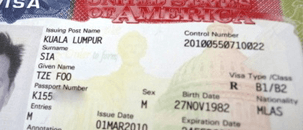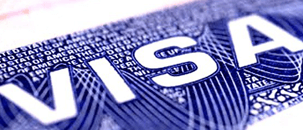![]() Maybe your are Ineligible for US Visa as we know it. There are certain conditions which the US government does not allow. These pertain to a spouse, fiancee or applicant who has either overstayed in the US before, has HIV/AIDS or other contraventions of the US immigration laws. If you are reading this page then you are in need to a US immigration lawyer.
Maybe your are Ineligible for US Visa as we know it. There are certain conditions which the US government does not allow. These pertain to a spouse, fiancee or applicant who has either overstayed in the US before, has HIV/AIDS or other contraventions of the US immigration laws. If you are reading this page then you are in need to a US immigration lawyer.
Ineligible for US Visa
These are the most common issues where the visa is rejected as the person is not admissible into the United States. See also the US visa financial requirements as well as the US visa interview questions. There will also be question when you apply for a tourist visa when you complete the DS-160 form.
Section 214(b) of the Immigration and Nationality Act (INA)
(unknown intention of applicant)
This is a provision that applies to nonimmigrant visa applicants, such as those seeking to enter the United States for business, tourism, study, or other temporary purposes. The section states that every nonimmigrant visa applicant is presumed to be an immigrant until they are able to overcome that presumption by demonstrating that they have a foreign residence which they have no intention of abandoning, and that they are coming to the United States temporarily for a specific purpose.
This provision is often referred to as the “B-visa burden” because it places the burden of proof on the visa applicant to demonstrate that they are not intending to immigrate to the United States. In many cases, consular officers may find it difficult to determine the applicant’s true intentions and may deny the visa application as a result.
Section 221(g) of the Immigration and Nationality Act (INA)
(incomplete documents, temporary refusal not final rejection)
This is the most common visa denial part that you will see. Many who attempt to complete the visa application themselves tend to have errors or misplaced documents. This is a visa rejection however the rejection is not final as you can still fix what is incorrect or missing. This provision that allows a consular officer to temporarily refuse a visa application if the officer determines that additional information.
Now this refusal under section 221(g) means that the visa application is only pending and not yet finally refused. Once the required information including missing documentation are provided, as well as the need for security checks with regards to certifications and completing the procedures correctly. How long it takes to resolve a section 221(g) refusal will depend on how complex the problem is. Sometimes documents will need to be redone or the addition of another document. Example is a notarized document without the notary certificate will need to be redone. It is best at this point in time to seek legal assistance to avoid more delays and rejection. The appeal will cost more than assistance at this point.
![]()
Section 212(a) of the Immigration and Nationality Act (INA)
(specific reason why you cannot obtain a visa)
This provision that lists specific grounds of inadmissibility for both immigrants and nonimmigrants. In short this will give you the reasons why you are barred from entering the United States.
Some of the most common grounds of inadmissibility listed in section 212(a) include:
Health-related grounds: This is normally a communicable disease of public health significance. You can apply again once the illness has cleared and will then be allowed again.
Criminal grounds: Drug drug trafficking and such issues as moral turpitude.
Security and terrorism-related grounds: Your membership in a terrorist organization or involvement in espionage.
Public charge grounds: This is where you will need social services when entering the US.
Labor certification and qualifications : Your qualifications don’t match the job offer.
Unlawful presence: It short an illegal immigrant.
Lack of Documents: You don’t have a passport for longer than 6 months after entering the US
Previous Deportation: This is not uncommand with fiancee visa applications. You will need to wait the time period out before you can apply again.
![]()
Section 212(d)(3) of the Immigration and Nationality Act (INA)
This provides for discretionary waiver of inadmissibility for nonimmigrant visas. This means that a consular officer or an immigration judge has the discretion to grant a waiver for certain grounds of inadmissibility for nonimmigrant visa applicants, such as those seeking to enter the United States for business, tourism, study, or other temporary purposes.
If you are concerned about inadmissibility under Section 212(a) of the INA, (see above) it may be possible to apply for a waiver under section 212(d)(3). However, the grant of a waiver is not guaranteed. This can turn your ineligible for US Visa around.
![]()
 US Embassy US Consulates around the world
US Embassy US Consulates around the world 


